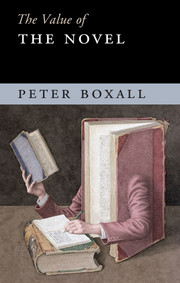4 - Making Time Matter
from Part II - Matter
Published online by Cambridge University Press: 05 September 2015
Summary
Time is the only narrative that matters.
Don DeLillo, The Body ArtistTime becomes human time to the extent that it is organised after the manner of a narrative.
Paul Ricoeur, Time and NarrativeI began the last chapter with Beckett's skeletal depiction of the novelistic scenario. The novel proposes a fictional body, occupying a fictional space. But if these are the two basic elements of the way in which we imagine being, then it is also surely the case that there is a third element, just as foundational to our narrative understanding and depiction of life. In writing fictions we put bodies in space. But we also necessarily put bodies in time. We imagine a body where there is none, in a place where there is none, in a time where there is none.
This requirement – that a body must exist not only in space but also in time – is the subject of a discussion that opens H.G. Wells’ classic exploration of the relationship between time and narrative, The Time Machine. The unnamed time traveller in Wells’ story assembles his guests at the opening of the narrative in order to show them his latest invention, and he prepares them for the unprecedented demonstration they are about to receive by giving them a short lecture on the relationship between time and space. ‘The geometry they taught you at school’, the traveller says to his friends, ‘is founded on a misconception’, a fundamental misunderstanding of the nature of spacetime. A body that has only three dimensions, he says – a ‘cube’, for example, that has ‘only length, breadth and thickness’ – ‘has no real existence’ (p. 7). One of the guests, a mildly idiotic character named Filby, interrupts the time traveller. ‘There I object’, he says, ‘Of course a solid body may exist. All real things-.’ But we never learn what Filby understands to be the nature of ‘real things’, because the traveller interrupts him in turn, to qualify his claim that a three-dimensional cube has no existence.
- Type
- Chapter
- Information
- The Value of the Novel , pp. 93 - 115Publisher: Cambridge University PressPrint publication year: 2015



